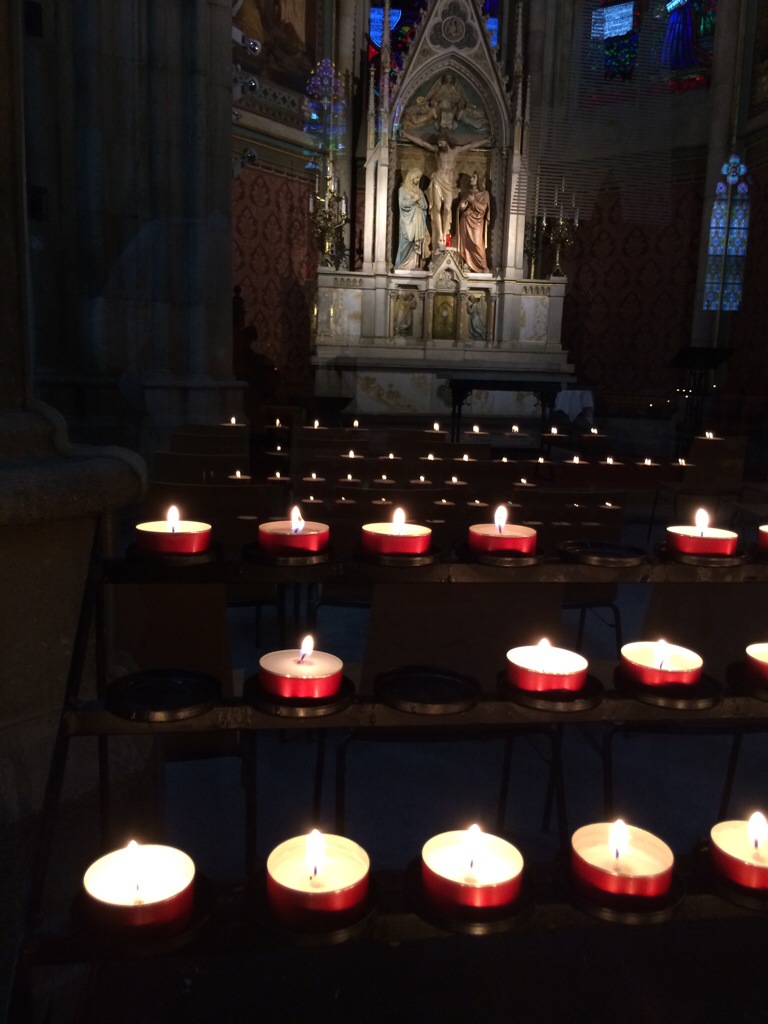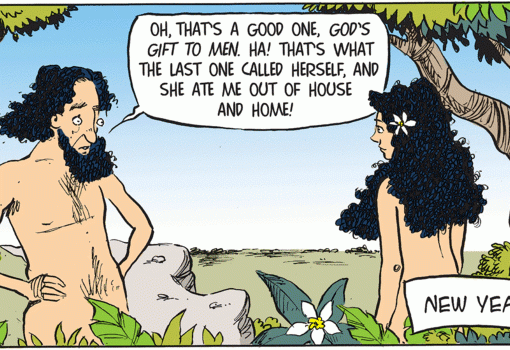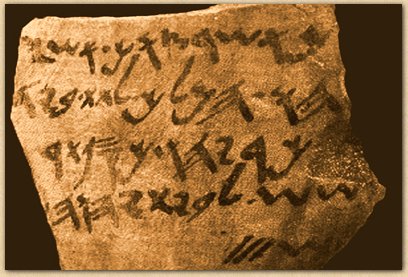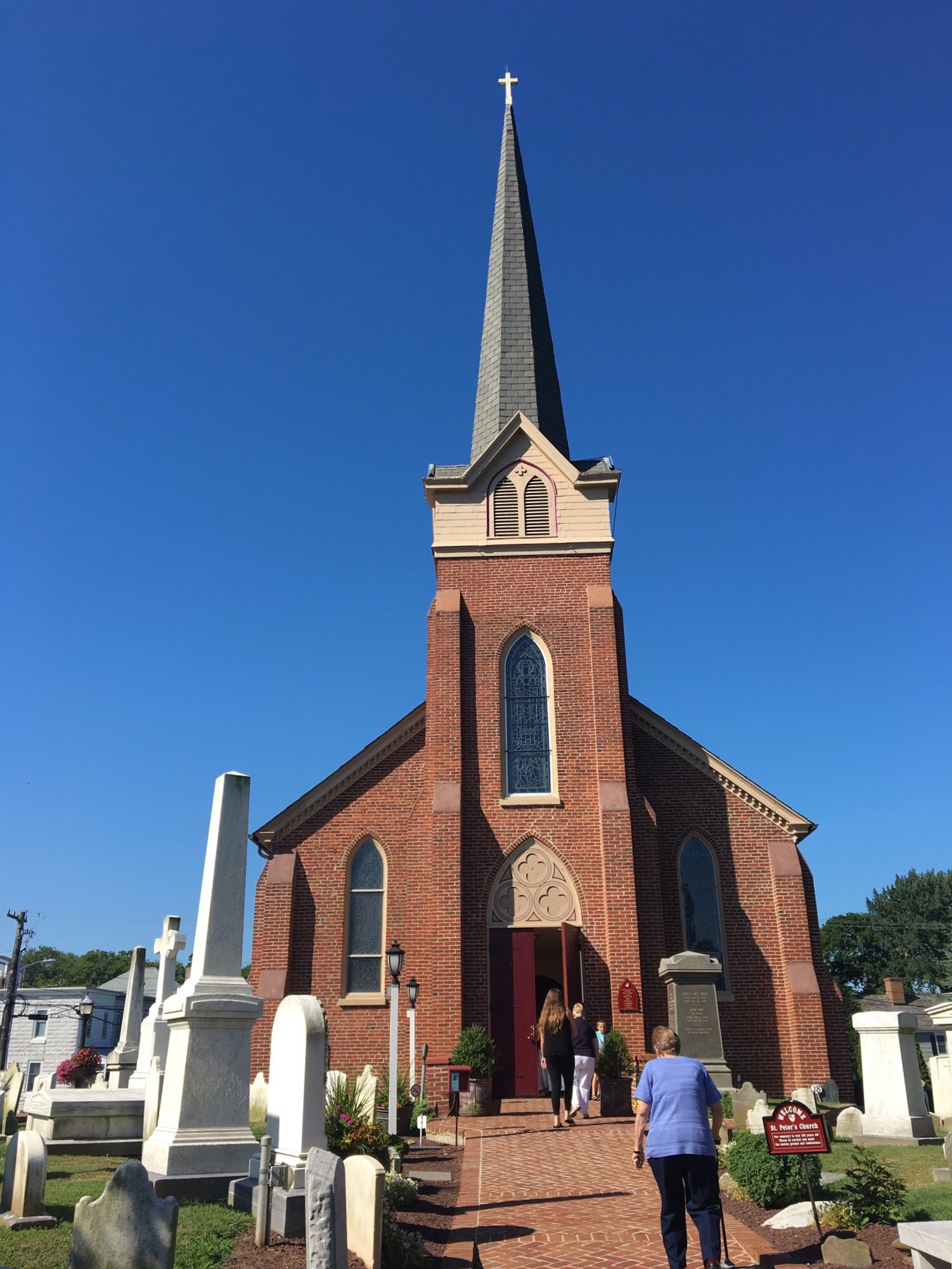
July 17, 2016
St. Peter’s, Lewes, DE
PROPER 11 (16) Ninth Sunday after Pentecost Year C
Amos 8:1-12 and Psalm 52
Colossians 1:15-28
Luke 10:38-42
It is a great honor and privilege to be with you again. Some of you may remember that you were gracious enough to allow me to preach here a little over a year ago and I am grateful to your rector and Father Larry Hofer for extending the invitation again.
Much has happened in one year. Our daughter Izzy has graduated from high school and will be starting college next month at Penn State. Many books and articles have been written by many people. The presidential primaries have nearly run their…well, what we might safely call, “historic” course. And amazing violence continues across our country and this world.
This weekend, of course, there was the tragedy in Nice where a man ran a truck through a crowd of Bastille Day celebrants, killing more than 80 people. The military attempted a coup in Turkey. There have been bombings in Paris, Brussels, and there have been over 600 suicide attacks around the world with over 6,000 victims. Then at home we are now becoming more and more aware of the violence that young Black people face in our country, with the two most recent shootings by police in Baton Rouge (Alton Sterling) and Minnesota (Philander Castile) and the subsequent attack on police officers in Dallas resulting in a dozen wounded and 5 dead. And, of course, the violence in Orlando against the gay community.
We live in a hurting and broken world.
This is probably not what you expected or wanted to hear from your pulpit on Sunday morning. But this is the world we live in and we need that context, both historical and theological. As much as we might like to think that things haven’t always been this way, that the world, or at least our country, was a better place 50 years ago, 100, or centuries ago, but this is the world that humanity has created, it is broken and hurting. But this is not the world God created or intended for us to inhabit and protect.
“God saw all that he had made it is was very good.” And Paul tells us that it was created by, with, and in Christ, for “in him all things in heaven and on earth were created, things visible and invisible” Yet we, humanity, are selfish in nature, rather than caring and protecting this creation and obeying God, we look after our own desires and the result is that some serve others, basic survival requires hard labor and “the sweat of our brow,” and we are dust and to dust we shall return.
But God did not, has not given up on us, his creation. He has continued to work through history to bring hope, healing, and love to this world. First through Israel and the Law and ultimately through the very Son of God who is “the image of the invisible God, the firstborn of all creation.”
In today’s epistle Paul gets at the very heart of the Gospel, the very heart of the meaning of Jesus’ purpose in being, living, dying, and rising from the dead. But it can seem so very theological and abstract, dry and boring. One of the risks we run in the Episcopal church, in any Catholic liturgical tradition, is that we use words like “resurrection” and “redemption” so often that we think we know what they mean, but do we really think about them or consider its impact on our lives, today? If I were to ask you, “what does the resurrection of Jesus mean to you?” What would you say?
Paul tells us that Jesus “has now reconciled [us] in his fleshly body through death, so as to present [us] holy and blameless and irreproachable before [God].” But what does that mean? To you, to me?
It should mean, at least in part, that we do not despair over the state of this world, as we realize that this world is not all that exists or will exist. We are made holy and blameless before God and we have life eternal in him and with him. There will be a new heaven and a new earth.
But for now, we are a part of this world and the fact that in Christ we are reconciled to God also means that as we are changed by our faith in Christ, God will use us to change this world as we remain “securely established and remain steadfast in the faith.”
Paul does not just mean that we are “the hands and feet of Christ” doing his work in this world, although we are certainly that. And it is not just “grab your life vest, the boat is going down fast!” Yes, through Christ each of us has been saved, “made holy and blameless and irreproachable before [God].” And that can sound very selfish to some, as if we are only worried about our own salvation, making sure we have our ticket stamped (or whatever poor metaphor you might like). But that is missing the transformative power of the Gospel.
When my life is changed by Christ and I share the Good News with others and their lives are changed then the world is changed.
We might liken violence and suffering in the world to a medical disease like lupus. Doctors know it is an autoimmune disease, the symptoms are clear and obvious, things like arthritis, rashes, and kidney disease and doctors can treat those symptoms. But they do not know how to treat the root cause, how to fully heal the patient.
We can and we must, because we are called by Christ to do so, treat the symptoms of our hurting world. We must care for those less fortunate, bring justice for all people in our society, we must feed the hungry and shelter the homeless.
But to cure the illness, to get at the root cause of the violence and suffering, we must share the Good News of Christ. Col. 1:20 “[For] through him God was pleased to reconcile to himself all things, whether on earth or in heaven, by making peace through the blood of his cross.”
And this makes us uncomfortable. We have soup kitchens and thrift stores, we help resettle refugees and even take part in marches. But as Episcopalians we get very nervous about the idea of “evangelism,” about sharing the Gospel with others. After all, every is entitled to their own opinions and we don’t want to be like those preachers on the street corners, shouting about fire and brimstone. No, we are more sophisticated than that.
But if we really care about those we seek to help then we will also tell them about the one who can bring them and the world true peace.
And we do that by living out the Gospel in our own lives and telling others about Jesus who has reconciled us and all things to God, bringing true and lasting peace. So I will ask you again and urge you to consider your answer this week, what does it mean to you that Jesus “has now reconciled you in his fleshly body through death, so as to present you holy and blameless and irreproachable before [God].”
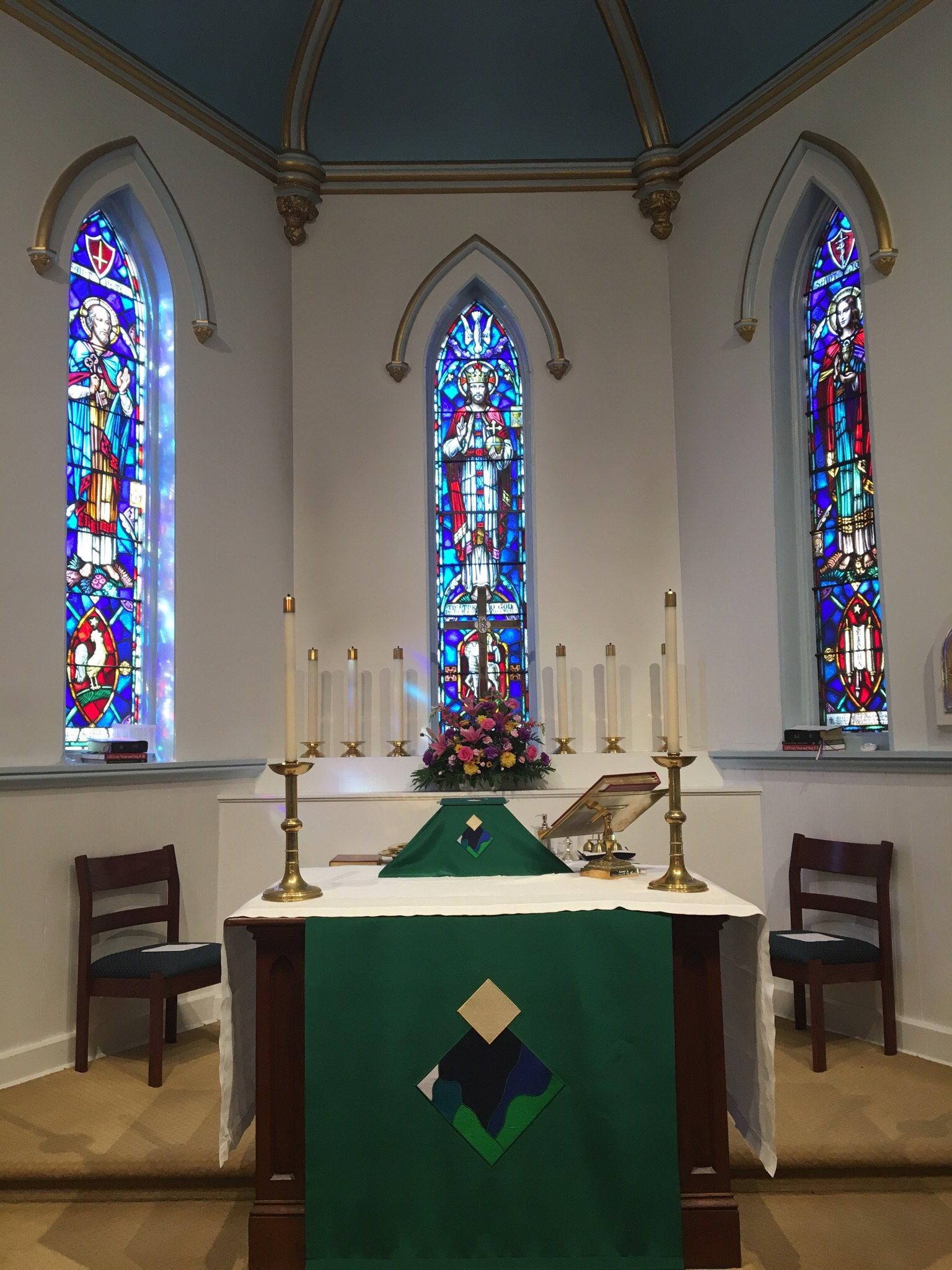 Col. 3:12 ¶ As God’s chosen ones, holy and beloved, clothe yourselves with compassion, kindness, humility, meekness, and patience. 13 Bear with one another and, if anyone has a complaint against another, forgive each other; just as the Lord has forgiven you, so you also must forgive. 14 Above all, clothe yourselves with love, which binds everything together in perfect harmony. 15 And let the peace of Christ rule in your hearts, to which indeed you were called in the one body. And be thankful.
Col. 3:12 ¶ As God’s chosen ones, holy and beloved, clothe yourselves with compassion, kindness, humility, meekness, and patience. 13 Bear with one another and, if anyone has a complaint against another, forgive each other; just as the Lord has forgiven you, so you also must forgive. 14 Above all, clothe yourselves with love, which binds everything together in perfect harmony. 15 And let the peace of Christ rule in your hearts, to which indeed you were called in the one body. And be thankful.
Amen.



